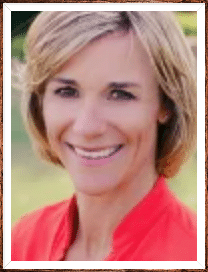 Krista Dunton, a two-time Carolinas PGA of America Section Palmer Maples Teacher & Coach of the Year, the 2007 Section Hilton Head Island Chapter Teacher of the Year and the 2001 New Jersey PGA Section Teacher of the Year, is the PGA of America/LPGA Director of Instruction at Berkeley Hall Club in Bluffton, South Carolina.
Krista Dunton, a two-time Carolinas PGA of America Section Palmer Maples Teacher & Coach of the Year, the 2007 Section Hilton Head Island Chapter Teacher of the Year and the 2001 New Jersey PGA Section Teacher of the Year, is the PGA of America/LPGA Director of Instruction at Berkeley Hall Club in Bluffton, South Carolina.
Krista Dunton on the importance of using certifications to further your education:
I’m always working on being more creative in how I coach, how I package lessons and how I spend my time. I’ve been successful with a lot of things, and it’s tough to switch things up when you’ve done well sometimes. But I’m always looking ahead to new things and watching what other coaches I admire are doing. There’s so much information out there, and I’m always watching golf instruction on YouTube, Instagram, TikTok. But I’ll never pass up a chance to watch great coaches give lessons in person – videos are great, but seeing a lesson in person gives you a different perspective. You can see what they do when things get off track a little bit, how they right the ship and change gears. I think back to watching lessons with PGA of America Teachers of the Year like Jim Hardy, Mike Adams and Jim Flick and seeing how they communicated with students. And what has that led to: certifications.
Krista Dunton on the business impact of using certifications to further your education:
Certifications are great for keeping up your education and keeping your ideas fresh. It helps build your reputation and can help you bring in new students who are looking for specialists. For example, I get a lot of students and recommendations because I’m known as an AimPoint instructor who can help a lot with someone’s putting. And when someone sends me a student, I’ll return the favor and send them people who might benefit from that coach’s expertise, which is a nice give and take. Having a handful of certifications is great for building your toolbox as a coach. I think a lot of the art in coaching is hearing what is working for other coaches, then figuring out how to mix it up and do something different with it so it works in your world. And I’m always working on the science part of it, which is helping students achieve their goals in the shortest amount of time without making the game painful – I don’t want players to have to get worse before they get better. That’s the art and the science of teaching together, learning how to get to the root of a player’s problem and get them playing better. And certifications have been a big part of the science component and can help you, too.
If you would like to email the author of this Best Practice directly, please email kdunton@me.com.







